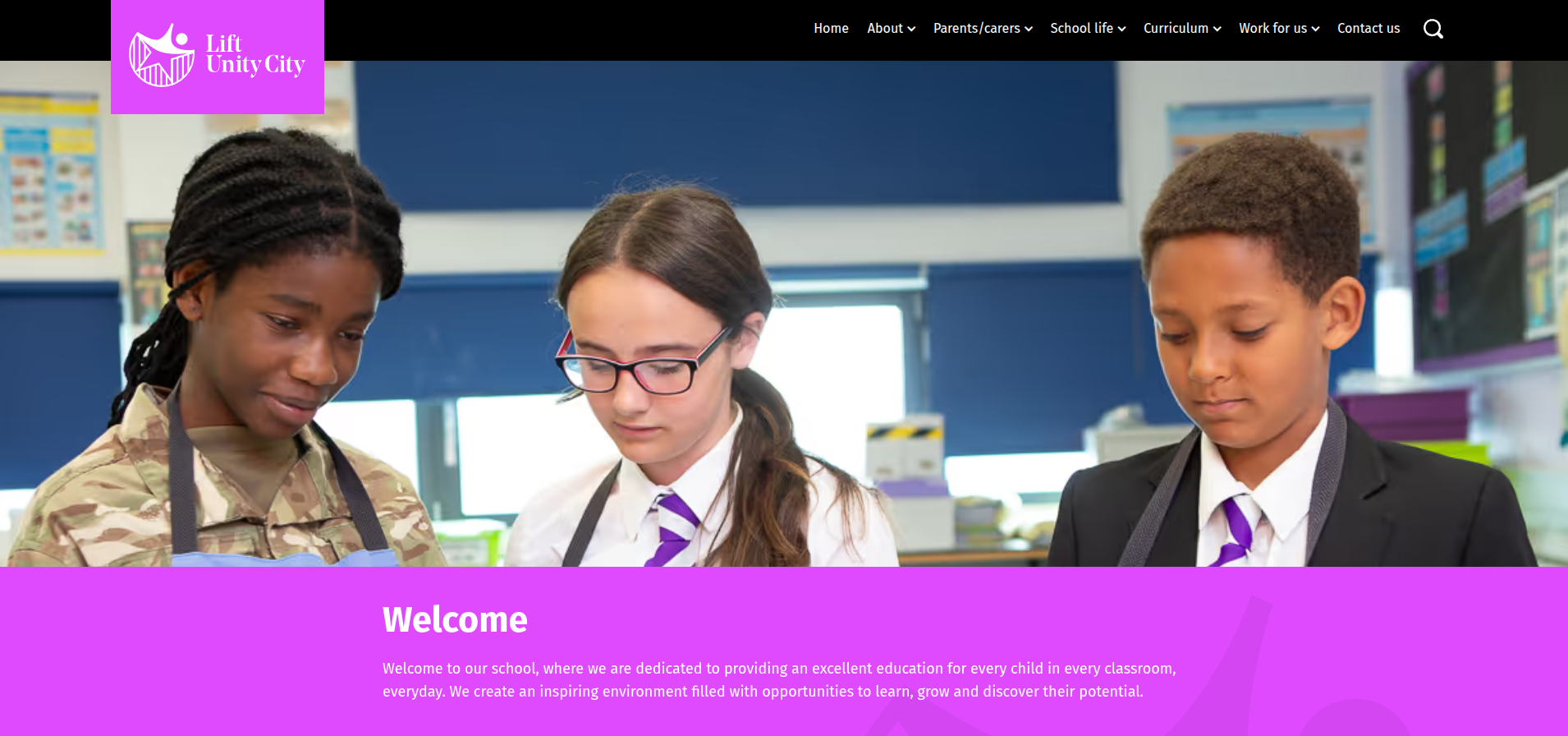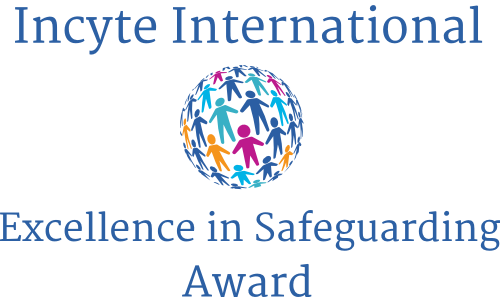At Lift Unity City, the development of literacy skills is at the heart of everything we do.
‘Teaching literacy to students means that they are given the ability to communicate clearly and effectively and form the foundation of modern life. Students who can't read effectively fail to grasp important concepts, score poorly on tests and ultimately, fail to meet educational milestones.’ (educationonline.ku.edu)
We place the utmost importance on developing reading, writing, and communication skills, both in lessons, and during social times. We aim to ensure that all students leave Lift Unity City well-equipped for a successful, highly literate, future.
We have a well organised intervention pathway for students to follow, should they need any support with their literacy skills. These programmes are bespoke for individuals and some are carried out in groups while others are one-to-one. Our main intervention programmes are Fresh Start, Lexia and Lexonik; all of which are well researched and proven to improve reading. Lexia can also be accessed at home for extra learning opportunities. We also provide fluency, inference, comprehension and handwriting interventions for students. If you wish to speak to a member of staff about the interventions we offer please contact jbrack@liftunitycity.org.
For further reading and information, relating to the importance of literacy, please visit:
Reading
Reading is the most important activity students conduct to: develop their vocabulary, writing, and comprehension skills. Countless studies have proved the academic benefits of reading across all areas of the curriculum. Reading is a priority at Lift Unity City and a strong emphasis is placed upon it.
Our aim is to nurture a love of reading. Students are expected to bring a reading book to school every day. Staff model positive reading behaviours and frequently engage in conversations with students about books they recommend or have recently read. We have several events which celebrate reading including: World Book Day, Share a Story Day and Read Aloud Day. Please view our gallery to see students and staff joining in these celebrations.
Parents/carers are encouraged to support us in our drive to improve literacy and there are many ways you can support engagement in reading: discuss books, read with your child or allow them to read to you, ensure that reading materials are available in the home (students can visit the library and take out up to three books at a time - we welcome recommendations and requests from students too).
Further suggestions can be found here:
Library
The LUC library has recently had a major overhaul and a large selection of new books have been added to the shelves. The Library is a fantastic resource where students can borrow one of many books to read during lessons and at home. We also have an online library software package MyOn, where students can access over 6000 books from any device and at home.
Reading is a skill that becomes better with practise. Reading for pleasure is critical for ensuring that the practise needed to become fluent becomes part of the learners’ everyday life, and is not just seen as a classroom-based activity. Through reading, a student will improve their spelling, literacy, vocabulary, imagination and social skills.
Students are able to request any books they would like to be added to the library. We are passionate about encouraging students to engage in books which genuinely interest them.
In addition to books, we also offer a range of enrichment activities during social times, such as chess, crafts, a study area and a plethora of board games.
Library Opening Times
Monday - 8am-4pm
Tuesday 8am-4pm
Wednesday - 8am-4pm
Thursday - 8am-4pm
Friday - 8am-4pm
Writing: Spelling, Punctuation and Grammar
‘Writing is an essential life skill. Writing is the primary basis upon which one's work, learning, and intellect will be judged—in school, in the workplace and in the community. Writing equips us with communication and thinking skills. ... ‘ Writing makes our thinking and learning visible and permanent.’ (What families can do to help students succeed.doc (district196.org)
At Lift Unity City, we place equal emphasis on writing, reading and communication. A large part of successful writing is the ability to spell accurately, punctuate to a high standard and be grammatically correct.
Lift Unity City takes a cohesive and consistent approach to this with all departments using strategies to allow students to progress in these areas. A variety of resources are used which include: writing maps, literacy resource cards, word banks and vibrant, informative displays.
Along with reading and the appropriate use of vocabulary, students are expected to demonstrate the highest levels of spelling, punctuation and grammar (SPaG). SPaG is taught across the year groups and students are aware of the ‘non-negotiables’ which corroborate their prior learning and seals the high standards of literacy within the school.
Support is given to students via: classroom tasks, displays, one to one, small group work, home learning tasks and resources to use both in class and around school. Students are expected to utilise the resources and develop an independent approach to improving their literacy skills.
Some practical tips for supporting writing at home:
- Take an interest in what they are writing about in different subjects in school.
- Encourage your child to read interesting newspaper and magazine articles (reading frequently has a huge, positive impact upon writing).
- Spontaneous spelling tests.
- Encourage them to write articles or letters for example: a newsletter for the local community, or even a diary of what they have learnt during their school day (also building their meta-thinking skills).
Oracy
As a school, we are developing a focus on oracy and the formal speech that students will need once they leave us.
Whilst we celebrate diversity of dialects and accents, it is important to acknowledge the various situations which require differing degrees of formality. Along with building confidence, we aspire for students to become great orators - able to articulate their views in an appropriate way.
To support this drive, students are expected to give detailed feedback using oracy scaffolds, stand to deliver any longer answers and remember that when speaking to staff or fellow students, they should do so in a polite and articulate manner. We appreciate that this is not easy for all students and offer support, encouragement and guidance to ensure that students are able to develop confidence and ability within this area.
Encouraging students to speak formally within school will aid their confidence and ability when moving on to their next steps, whether this be: college, apprenticeship or the world of work.
Oracy can be supported at home too:
- Take time to talk to your child. Although this may seem obvious, it is becoming more and more difficult to find quality time, as a family, to talk about your day.
- Discuss topical issues that they are interested in.
- Encourage them to put down their mobile phone/tablet, and talk to you, rather than spend too much time interacting through social media.
- Encourage them to participate in social activities in the community that involve them talking, for example drama groups, singing clubs, and voluntary work.





.jpg)
.jpg)
.jpg)
.png)




